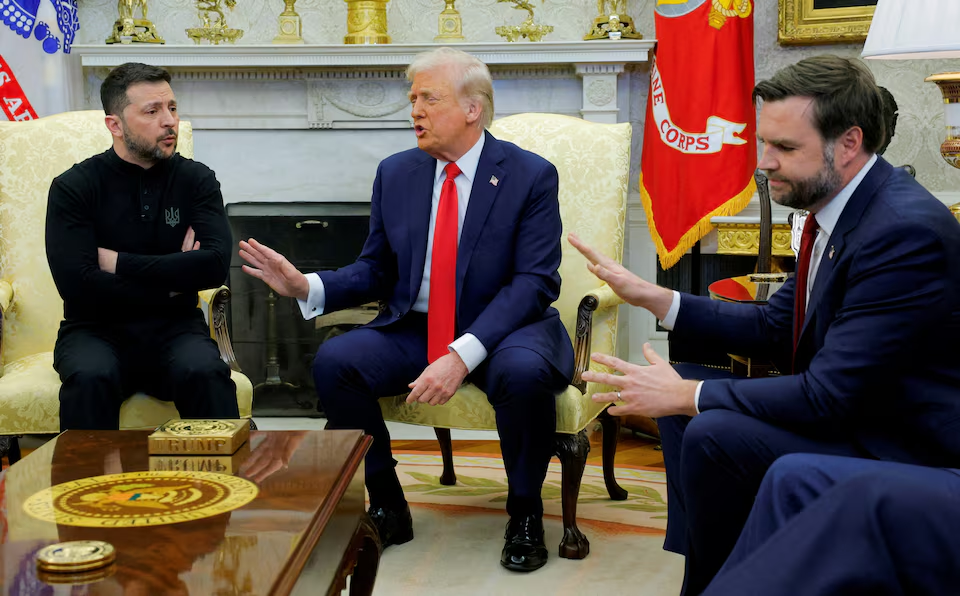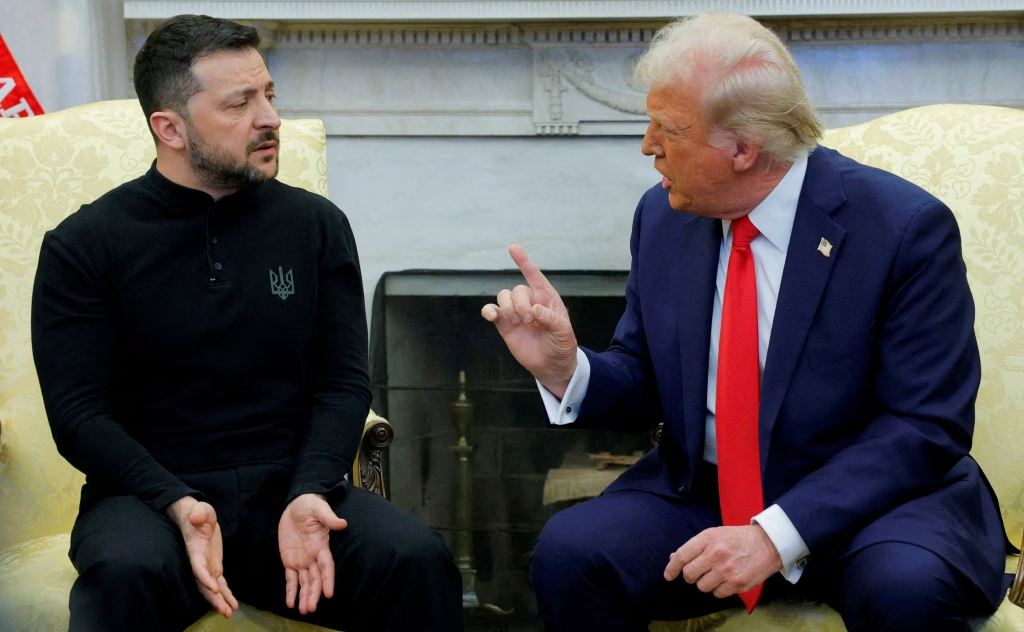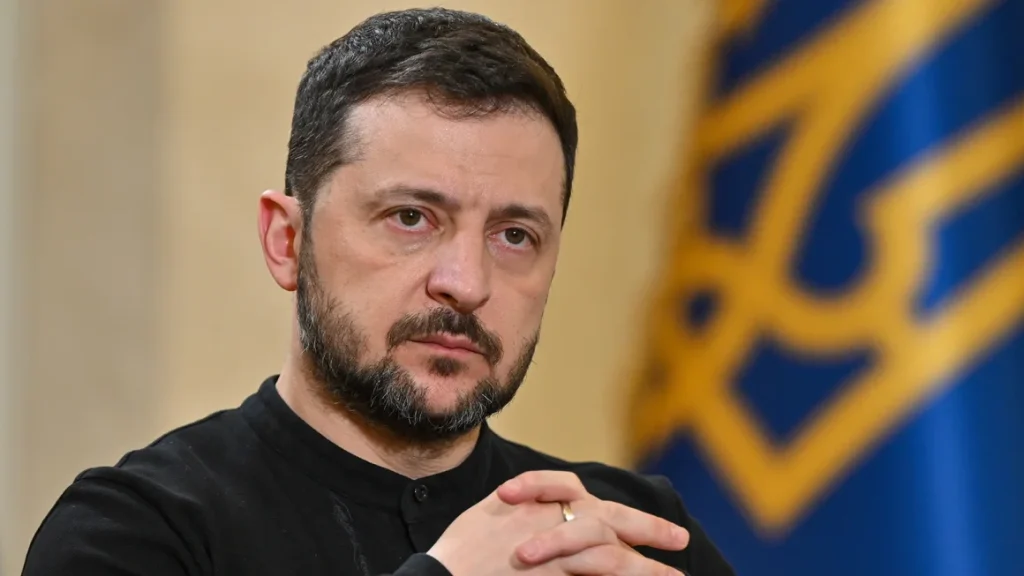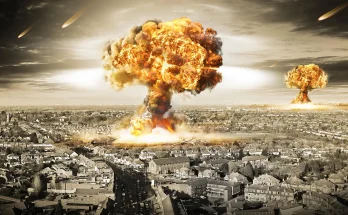Senior U.S. officials are intensifying pressure on Volodymyr Zelensky, hinting that he may need to step down following his ill-fated Oval Office meeting—even as Europe rallies behind the Ukrainian president with stronger support than ever.
This stark contrast underscores the most significant rift within the Western alliance since the fall of the Berlin Wall, fueling concerns that the “free world” is teetering on the edge of fragmentation early in President Donald Trump’s new term.
However, Europe’s move to fill the void left by Trump’s initial attempt to broker an end to the Ukraine war could also signal a glimmer of hope emerging from the fallout of Zelensky’s visit. This hinges on whether Europe can deliver on its promise, made Sunday, to craft a peace plan to present to the U.S. president.

Yet, the repercussions of Zelensky’s disastrous trip to Washington continue to mount.
Trump’s national security adviser, Mike Waltz, stated during an appearance on CNN’s State of the Union with Dana Bash on Sunday that the administration now doubts whether Zelensky is genuinely committed to ending the conflict.
“We need a leader who can work with us, eventually engage with the Russians, and bring this war to an end,” Waltz said. “If it becomes clear that President Zelensky’s personal or political motivations are at odds with ending the conflict in his country, then we have a serious problem on our hands.”
Waltz’s remarks highlight the U.S. stance that the war must be resolved at all costs, as Trump moves swiftly to mend ties with Russian President Vladimir Putin after wrongly accusing Zelensky of provoking the unprovoked invasion.
Meanwhile, British Prime Minister Keir Starmer hosted a gathering of Western leaders in London on Sunday, where Zelensky was welcomed as a guest of honor. In a highly symbolic gesture, King Charles III granted Zelensky an hour-long audience, just days after inviting Trump for a second state visit. Starmer pledged to form a “coalition of the willing” to arm and defend Ukraine, emphasizing that any lasting peace would require U.S. security guarantees—something Trump has yet to provide.
In addition, French President Emmanuel Macron revealed in an interview with Le Figaro on Sunday that France and Britain have proposed a month-long limited truce in Ukraine. Zelensky acknowledged the proposal but stopped short of endorsing it.
This assertive European leadership effort coincided with European Commission President Ursula von der Leyen’s call for Ukraine’s allies to transform the country into a “steel porcupine that is indigestible for potential invaders.”
The humiliation of a democratic leader amid Russia’s unlawful assault—an invasion that has killed thousands of civilians—sent shockwaves through Washington and beyond. Trump’s critics argue he effectively sided with the aggressor, abandoning long-standing U.S. foreign policy principles upheld since World War II.
For Trump’s allies, however, his rebuke of Zelensky was a show of strength and a testament to the “America First” doctrine that has redefined the nation’s global role. They viewed it as a triumph, reinforcing their belief in his tough, transactional approach to diplomacy.

Though recent heated debates and apocalyptic pronouncements about the decline of the West may have offered some catharsis, they do little to advance peace or serve the interests of key stakeholders—except for Putin, who has long sought to fracture Western unity.
Trump’s inner circle flooded Sunday talk shows with praise for their leader. Yet Friday’s confrontation undercut the notion that Trump is a master negotiator, uniquely capable of ending the war. Instead, it revealed a plan that hinged on forcing Ukraine into a peace deal, offering multiple concessions to Putin. The fallout also derailed a proposed U.S. deal to tap Ukraine’s rare-earth minerals—a prospect Trump saw as a personal win. His ambitions to be seen as a global peacemaker and a contender for the Nobel Peace Prize now seem more far-fetched than ever.
Zelensky’s own frustration contributed to the diplomatic collapse. He attempted to convey Ukraine’s deep skepticism about any peace deal lacking security guarantees, given Putin’s repeated violations of past agreements. Now, the prospect of him sitting at a negotiating table with Trump appears remote. The U.S. president may even move to cut aid, intelligence, and other support—potentially hampering Ukraine’s military efforts on the battlefield.
The Oval Office standoff spurred America’s European allies into urgent action. They are now working to shield Zelensky from Trump and draft a peace framework to present as a basis for talks with Putin. Yet if the U.S. withdraws its support, Europe’s ability to fill the void remains in doubt, hampered by years of military budget cuts, diminished defense production, and reliance on American security guarantees for NATO.
Meanwhile, pressure is mounting on Zelensky from within the U.S. House Speaker Mike Johnson echoed calls for Ukraine’s leader to change course. “Either he needs to come to his senses and return to the table in gratitude, or someone else must lead the country to do so,” the Louisiana Republican said on NBC’s Meet the Press.
Following Friday’s breakdown, even Republican Senator Lindsey Graham—previously a Zelensky supporter—aligned with Trump, stating, “I don’t know if we can ever do business with Zelensky again.”
On State of the Union, when pressed about his shifting stance, GOP Representative Michael Waltz, who once likened Zelensky to Winston Churchill, dismissed him on SiriusXM as “an ex-girlfriend that wants to argue.”



